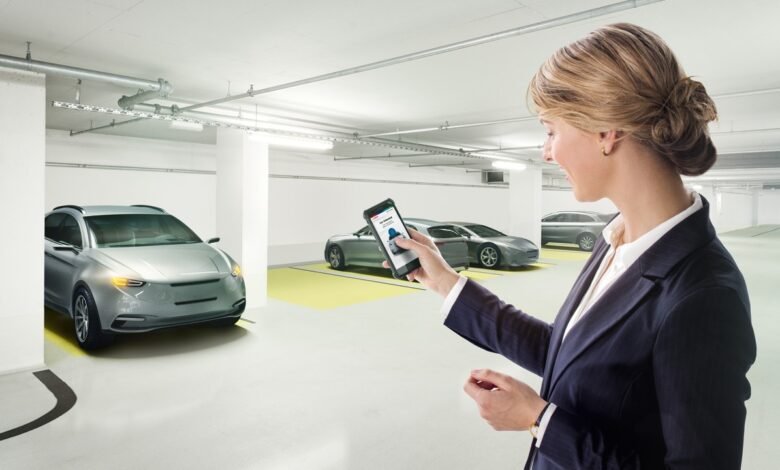Automated Valet Parking: The Efficiency in Urban Mobility

Introduction
In the fast-paced world of technological advancement, automated valet parking has emerged as a groundbreaking innovation reshaping how we perceive parking and urban mobility. This transformative concept offers a glimpse into a future where the hassles of circling crowded parking lots, hunting for a space, and squeezing into tight spots become relics of the past. It leverages cutting-edge technology to streamline the parking process, enhance convenience, and optimize space utilization.

Seamless Integration of Automation
At the heart of automation’s integration into the parking experience. With an intricate web of sensors, cameras, and advanced algorithms, vehicles equipped with this technology can navigate through parking structures autonomously. They can identify and assess available parking spaces, maneuver into them with precision, and seamlessly rejoin their owners when requested, all without human intervention.
Revolutionizing Automated Valet Parking
Automated valet parking holds the potential to revolutionize urban mobility on multiple fronts. It addresses the perennial issue of limited parking space by maximizing utilization and minimizing the wastage of valuable urban real estate. By reducing the need for large parking lots, cities can allocate space for more parks, public areas, or even housing, fostering a more sustainable and livable environment.

Enhanced Efficiency and Convenience
The efficiency and convenience offered are unparalleled. Drivers can drop off their vehicles at a designated area, and the car finds an available spot and parking itself. This eliminates the stress and time wasted searching for parking, especially in busy urban centers. Upon returning, drivers can summon their vehicles through a smartphone app, making the retrieval process equally effortless.
Safety and Precision
Safety is a paramount concern in the world of automation and rises to the challenge. These systems, equipped with advanced sensors and algorithms, ensure that vehicles navigate carefully, avoiding obstacles and pedestrians. The precision of these systems allows for optimal space utilization, minimizing the gaps between cars and eliminating the risk of dings or scratches.
Challenges and Future Outlook
While it holds immense promise, technical glitches, regulatory frameworks, and standardized infrastructure must be addressed. However, these challenges will likely diminish as the technology matures and becomes more widely adopted. The future could see seamless integration with smart cities, vehicle-to-infrastructure communication, and even autonomous vehicle fleets.

Conclusion
This stands as a testament to the remarkable progress of technology in reshaping urban mobility. By eliminating the stress of parking and optimizing space utilization, it offers a tantalizing glimpse into a future where transportation is efficient and seamlessly integrated into the fabric of modern cities. As we journey towards this future, around reminds us that innovation knows no bounds when enhancing our daily lives.
FAQs of Automated Valet Parking: The Efficiency in Urban Mobility
How does automated valet parking work?
Equipped with sensors, cameras, and algorithms, vehicles communicate with the parking infrastructure to locate and navigate to an available parking space. They later retrieve the vehicle upon the owner's request.
How is the safety of automated valet parking ensured?
Automated valet parking systems use advanced sensors and algorithms to navigate carefully, avoiding obstacles and ensuring safe maneuvering within parking structures.
Does automated valet parking require specific infrastructure?
Yes, parking facilities need to be equipped with the necessary infrastructure, such as sensors and communication systems, to enable vehicles to communicate and navigate autonomously.
Automated Valet Parking: The Efficiency in Urban MobilityHow Do You Like Our Post
0






